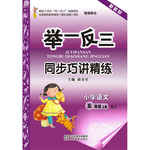题目内容
In the doorway of my home, I looked closely at my 23-year-old son, Daniel. In a few hours he would be flying to France to a different life. It was a transitional(过渡的)time in Daniel's life. I wanted to him some words of significance. But nothing came from my lips, and this was not the time I had let such moments pass.
When Daniel was five, I took him to the bus stop on his first day of kindergarten. He asked, “What is it going to be like, Dad? Can I do it?” Then he walked the steps of the bus and disappeared inside. The bus drove away and I said nothing. A decade later, a similar played itself out. I drove him to college. As I started to leave, I tried to think of something to say to give him and confidence as he started this new stage of life. Again, words me.
Now, as I stood before him, I thought of those opportunities. How many times have I let such moments ? I don't find a quiet moment to tell him what they have to me. Or what he might to face in the years ahead. Maybe I thought it was not necessary to say anything.
What does it matter in the course of a lifetime if a father never tells a son what he really thinks of him? as I stood before Daniel, I knew that it did matter. My father and I loved each other. Yet, I always never hearing him put his into words. Now I could feel my palms sweat and my throat tighten. Why is it so to tell a son something from the heart?
My mouth turned dry, and I knew I would be able to get out only a few words clearly. “Daniel,” I said, “If I could have picked, I would have picked you.” That's all I could say. He hugged me. For a moment, the world , and there were just Daniel and me. He was saying something, but tears misted my eyes, and I couldn't understand what he was saying. All I was of was the stubble(短须)on his chin as his face pressed mine. What I had said to Daniel was . It was nothing. And yet, it was .
1.A. experience B. spend C. enjoy D. shape
2.A. show B. give C. leave D. instruct
3.A. last B. first C. very D. next
4.A. on B. into C. down D. up
5.A. sign B. scene C. scenery D. sight
6.A. interest B. instruction C. courage D. direction
7.A. failed B. discouraged C. struck D. troubled
8.A. future B. embarrassing C. obvious D. lost
9.A. last B. pass C. fly D. remain
10.A. counted B. meant C. valued D. eared
11.A. think B. want C. expect D. wish
12.A. But B. And C. Instead D. So
13.A. wondered B. regretted C. minded D. tried
14.A. views B. actions C. feelings D. attitudes
15.A. important B. essential C. hard D. complex
16.A. disappeared B. changed C. progressed D. advanced
17.A. sensitive B. convinced C. aware D. tired
18. A. by B. against C. on D. with
19. A. clumsy B. gentle C. clever D. moving
20. A. none B. all C. anything D. Everything
 举一反三同步巧讲精练系列答案
举一反三同步巧讲精练系列答案 口算与应用题卡系列答案
口算与应用题卡系列答案 名师点睛字词句段篇系列答案
名师点睛字词句段篇系列答案
